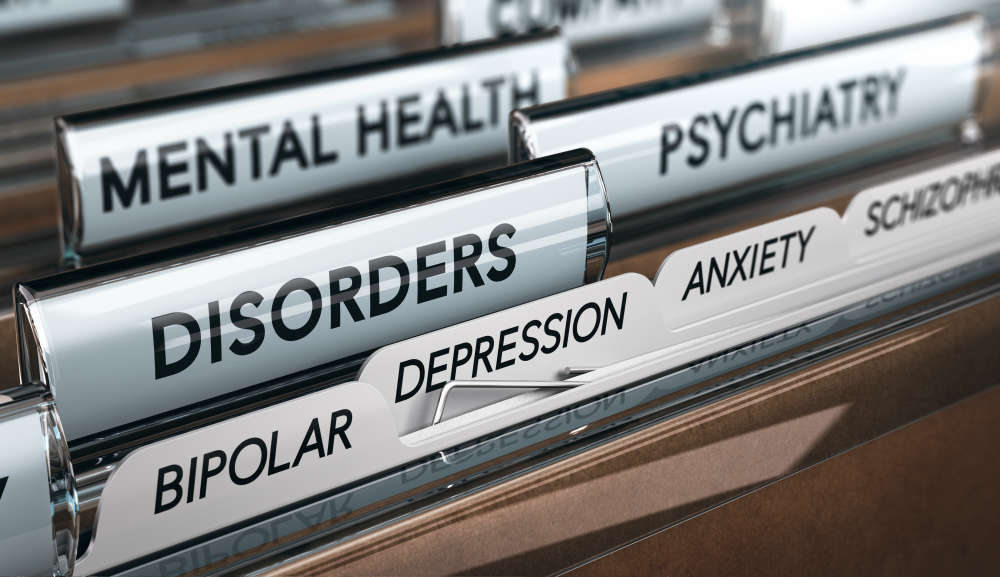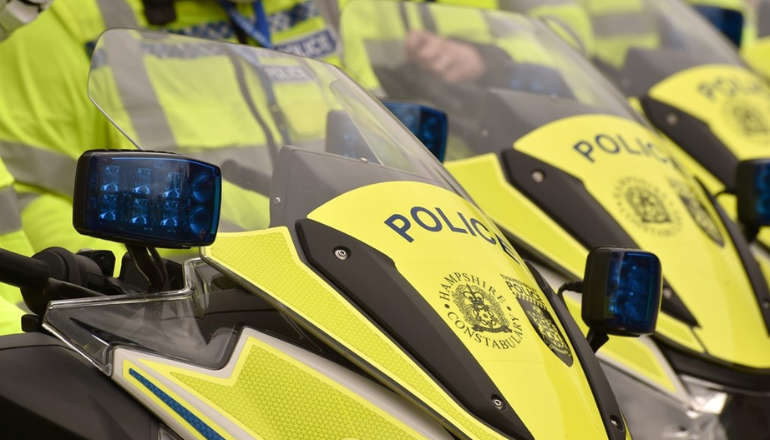
Many people recognise the importance of looking after their mental wellbeing, but many feel uncertain they could help someone experiencing a mental health crisis.
This is particularly concerning given that one in six people will likely experience symptoms of mental health concerns like depression or anxiety during this week alone.
With Mental Health Awareness Week taking place this week (May 15 - 21), first aid instructors at Onsite First Aid Training have shared the signs to watch out for if you think someone is having a mental health crisis and how best to offer support.
What is a mental health crisis?
A mental health crisis is when a person’s thoughts, feelings or behaviours prevent them from functioning, taking care of themselves, or when they put themselves or others at risk of harm.
It can happen to anyone, and you don’t have to have a pre-existing mental health condition. A mental health crisis can be triggered by negative events or stresses such as bereavement, divorce or losing a job, or it can be the result of a prolonged period of substance abuse.
Signs that someone might be experiencing a mental health crisis
You might notice warning signs in advance, or they could come seemingly out of nowhere. Some common warning signs to watch out for, which could indicate someone is experiencing a mental health crisis include:
- Intense or sudden change in mood or behaviour
- Experiencing psychosis - including hallucinations or delusions
- Feelings of paranoia
- Feeling increasingly agitated, angry, or violent
- Suicidal ideation or talking of ‘making plans’
- Self-harming or wanting to harm themselves or others
- Isolating or withdrawing from others
- Inability to function or perform daily tasks, including personal hygiene.
Six ways to help someone experiencing a mental health crisis
Assess the risk of harm or suicide
It is vital to first identify if someone in crisis has hurt themselves or is thinking about hurting themselves.
If you can see that someone has seriously injured themselves or they report having taken an overdose, immediately dial 999 and stay with them until paramedics arrive.
If the person has self-harmed, but the bleeding has stopped, it is still important to call 111, as they will be able to assess the severity of the injury over the phone. Do your best to describe the extent of the injury, as this will determine whether the person is likely to need medical attention to prevent infection or to remove sharp objects, such as glass, from their skin
Ask open-ended questions
When talking to someone in crisis, ask more open-ended questions, as these will encourage a more detailed response. Questions such as “How would you describe what you’re feeling right now?” can make it easier for the other person to convey their thoughts and feelings and can help bring them back down to baseline. A good tip is to try and start each question with either ‘how’, ‘why’, or ‘what’.
Closed-ended questions, on the other hand, typically prompt a ‘yes’ or ‘no’ response and don’t leave as much room for exploration of feelings. These types of questions can still be useful when you need a straightforward answer to a question, such as asking, ‘Have you hurt yourself?’ or ‘Do you feel suicidal?’
Actively listen, and let the other person talk
When talking with someone about their mental health, try to actively listen rather than trying to offer advice and guidance.
This means putting your phone away and engaging in eye contact, using open body language, and listening without judgment or trying to offer a solution, showing you are providing your full attention.
Simply clarifying or repeating what they have said in your own words can go a long way in making someone feel heard, even if you don’t know how to respond to a particular piece of information.
Small verbal and non-verbal affirmations such as “That sounds really difficult” or simply nodding show that you acknowledge what has been said without interrupting the person in crisis.
Have patience
When someone is in crisis, they may find it difficult to think clearly and articulate their thoughts and feelings into words. Try to remain patient and not rush through the conversation; otherwise, they may not feel it is a safe space to talk and could shut off entirely.
Remember, they may have never talked about these feelings with anyone before and might be unfamiliar with how to navigate what they are experiencing. Assure them that they can take their time to fully express how they are feeling.
Accept that someone might not be ready to talk
Remember that not everyone will feel ready to talk to you when in crisis, particularly if you are a total stranger. They may not trust you or may feel uncomfortable talking in the current location.
Unless it is to determine whether someone intends to or has harmed themselves or others, it's important to respect someone’s wishes not to talk. Simply letting someone know you are there can encourage them to talk when they feel ready.
Encourage professional help
Talking with someone during a mental health crisis could potentially save their life, but it's important to remember that you are not a substitute for professional help.
Once you have established that the person can keep themselves safe, encourage the individual to seek support from qualified professionals as they will be the best equipped to support their needs.
Usually, this will be their GP, who can guide the person towards mental health resources and medical help through the NHS.
There are also local organisations that can provide support too. These can be found on Hub of Hope, a website that lists local organisations that provide mental health support.


 Five Of The Most Wondrous Ancient Ruins In The World
Five Of The Most Wondrous Ancient Ruins In The World
 Five Of The Most Inhospitable Places on the Planet
Five Of The Most Inhospitable Places on the Planet
 Five Animals You Wouldn’t Believe Are Kept as Pets
Five Animals You Wouldn’t Believe Are Kept as Pets
 Five Most Pet-Friendly Destinations in the UK
Five Most Pet-Friendly Destinations in the UK
 Five UK Valentine's Destinations Perfect For A Night Away
Five UK Valentine's Destinations Perfect For A Night Away



 More Than 70 Driving Offences Dealt With Over Two Days On Isle Of Wight Roads
More Than 70 Driving Offences Dealt With Over Two Days On Isle Of Wight Roads
 Wightlink Technical Problems Lead To Cancellation Of All Fishbourne-Portsmouth Crossings
Wightlink Technical Problems Lead To Cancellation Of All Fishbourne-Portsmouth Crossings
 Contentious Plans For New 7,245 Square Metre Commercial Park Appealed
Contentious Plans For New 7,245 Square Metre Commercial Park Appealed
 Wightlink Crossings Cancelled Due To Engine Issues
Wightlink Crossings Cancelled Due To Engine Issues